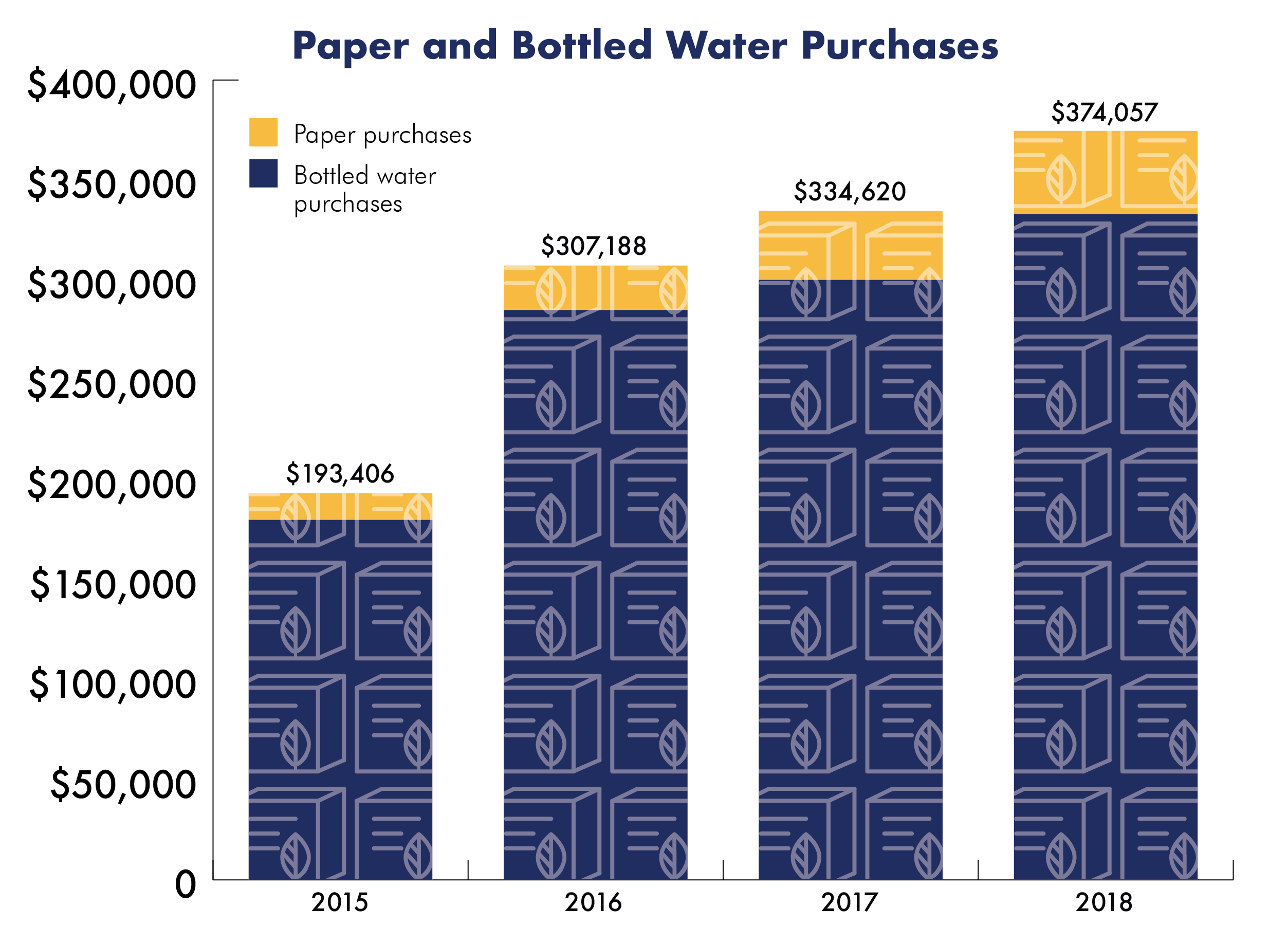Emory influences the marketplace through the thoughtful procurement of goods and services that meet high standards of sustainability, diversity and social justice. Emory is committed to enhancing the sustainability of its supply chain and reducing the embedded carbon footprint from goods and supplies that are used on campus and by healthcare system.
So Far
- In 2013, Emory became a founding member of the Sustainable Purchasing Leadership Council, a non-profit organization whose mission is to support and recognize purchasing leadership that accelerates the transition to a prosperous and sustainable future.
- Emory’s Sustainable Food Guidelines inform food and beverage purchasing by Emory Dining and Emory Healthcare.
 Click image for a larger view
Click image for a larger view
Emory encourages employees to model the institutions commitment to sustainability by making purchasing decisions that positively impact social, economic, and environmental systems. Two measurements that indicate sustainable purchasing behaviors are amounts spent on bottled water and paper at Emory, both of which have increased annually since 2015.
Today
- Emory contracts require minimum standards governing employee wages, benefits, and working conditions and provides increased access to minority, disadvantaged, and women-owned vendors.
- The purchase of polystyrene products is banned using Emory funds.
- Emory Human Resources’ Excellence Through Leadership program developed a sustainability decision-making tool, which will help purchasers incorporate full cost accounting into purchasing decisions.
- Emory uses Life Cycle Cost Analyses to evaluate all energy and water-using products, systems, and building components.
- Suppliers of Emory’s clothing and garment purchases are all certified by the Fair Labor Association.
- All new IT equipment purchased by Emory is EPEAT or Energy Star Certified.
- Emory’s Purchasing Department maintains a list of “Green Purchasing” Initiatives and was recognized in the top ten of universities (among 340) in the 2023 Sustainable Campus Index!
- In 2021, Emory signed the “Break Free From Plastic” pledge, which commits the University to take drastic steps to reduce its consumption of single-use plastics. This historic moment resulted from the efforts of the Plastic Free Emory Project, a student organization.
Tomorrow
The equipment, materials and supplies we purchase have an enormous impact on the environment. By 2025, Emory will:
- Support culture change towards “reduce, repair, restore, and reuse” mentality and “cradle to cradle” purchasing.
- Support procurement of local products with a sustainability-focused business incubator.
- Develop scorecards for “Emory preferred” practices and decisions which encourage full-cost accounting among vendors and contractors and integrate sustainability into selection criteria when awarding contracts.
